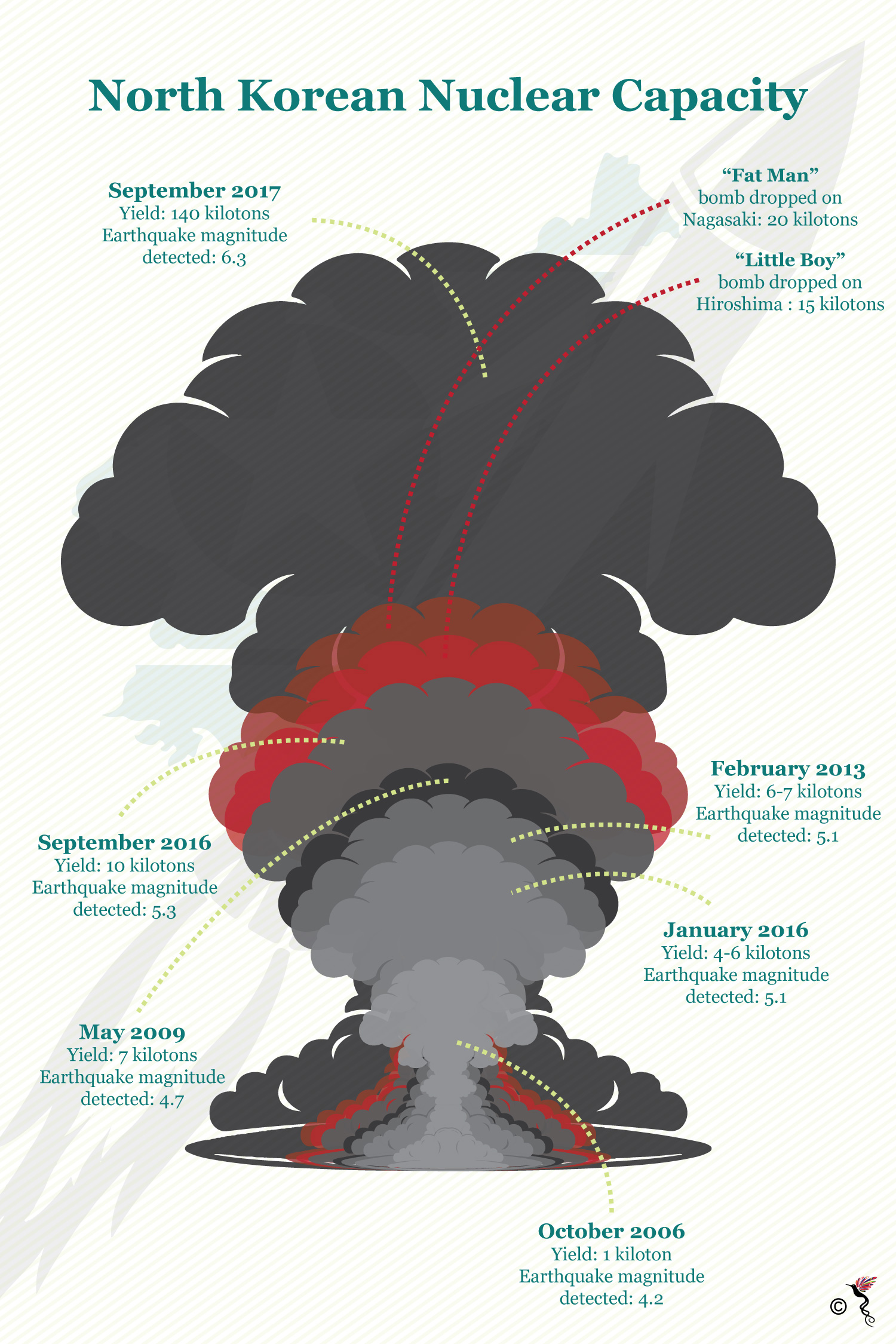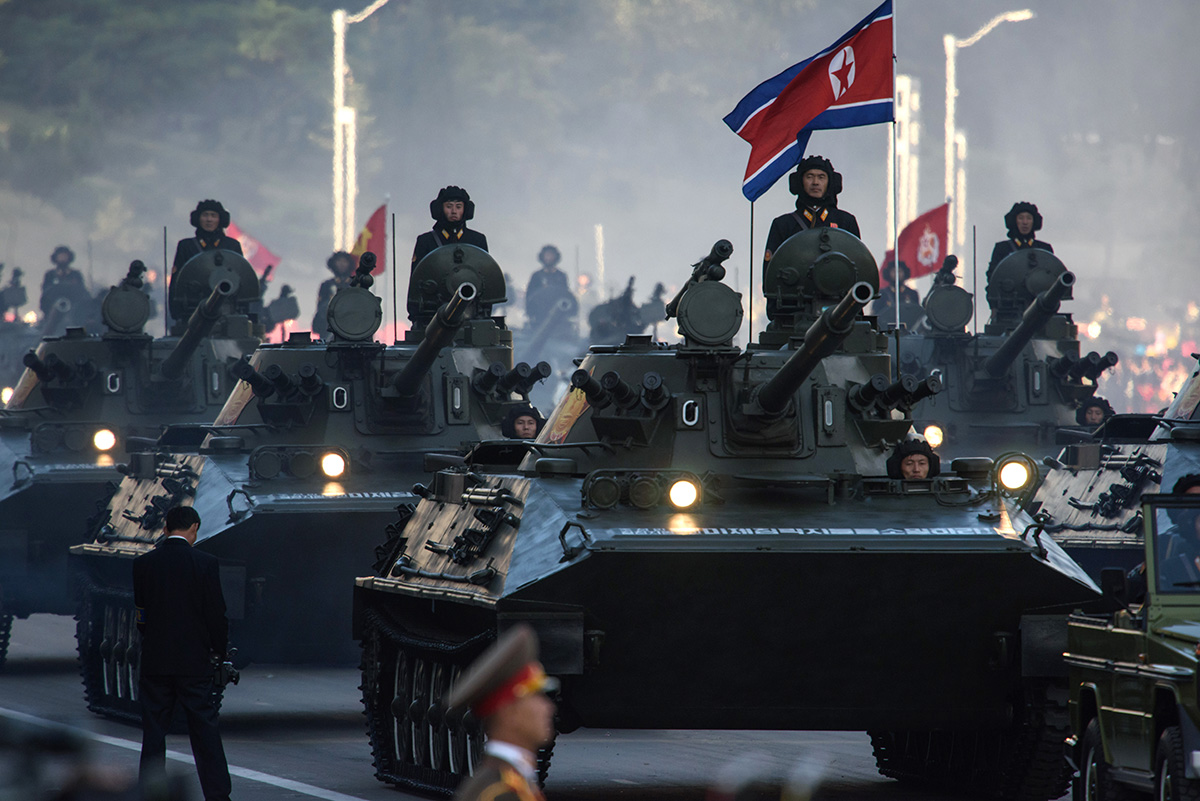Speaking off the cuff to his audience during the taping of his late night political and social satire show, comedian, Trevor Noah provided an interesting analogy of the tense situation unfolding between the US (United States) and North Korea.
“North Korea is like a hot potato. The skill is to keep the hot potato bouncing so that you don’t get burnt. Then you pass it on to the next person. That’s what every smart president does. You just have to be adept at bouncing it around,” he said to a gleeful crowd.
While the comments from a comic may not rival an expert's opinion, it provides a useful reminder of the predictable nature of geopolitics in the past. By any regard, Trump’s barrage of tweets and his infamous “fire and fury” remark are not steps in the right direction towards de-escalating tensions in the Korean Peninsula.
If anything, Trump’s actions have emboldened Pyongyang. In the face of an antagonised North Korean “Supreme Leader” and a seemingly trigger-happy US President, the fact that neither has hurled an actual nuclear warhead at one another is cause for cautious optimism. Nevertheless, world leaders now find themselves – yet again – in the beaten path of diplomacy but is it doing the situation any good?
The UNSC (United Nations Security Council) recently passed fresh sanctions on the hermit state’s oil and textile imports which US ambassador to the UN (United Nations), Nikki Haley hailed as the "strongest measures ever imposed". Pyongyang responded by vowing to accelerate its current nuclear programme and one day launch a missile capable of reaching the US mainland.
However, in an almost customary Trump fashion, the commander in chief contradicted the words of his top diplomat, saying that the sanctions were “not a big deal”, adding “but it’s nice to get a 15-0 vote”.
Trump’s arrogance in the latter half of his remarks aside, he is quite right that the sanctions were not exactly something to shout about.
According to a Bloomberg report, the sanctions have been severely watered down to suit the whims of Russia and China who refused the inclusion of provisions for an oil embargo and a freeze on Kim Jong-Un’s assets. Beijing and Moscow are still the largest economic patrons of the hermit state and both believe that Pyongyang is a necessary evil which serves as a strategic buffer between them and Washington.

North Korean nuclear tests in comparison to the nuclear bombs dropped on Hiroshima and Nagasaki
In essence, Russia and China are just playing along with the US in sanctioning North Korea to appear as responsible international actors, knowing fully that the sanctions are toothless. Their diplomatic game is one of a balance by keeping Pyongyang vehemently anti-US but not to the point where Washington is provoked into performing any action which could destabilise the region.
As tensions continue to mount, ASEAN (Association of Southeast Asian Nations) states cannot afford to stand idly by as possible nuclear escalations unfurl within their neighbourhood.
According to Senior Lecturer from the Department of International and Strategic Studies at the University of Malaya, Malaysia, Er-win Tan, in the context of the current US-North Korea stand-off, ASEAN has very little wiggle-room to exercise.
“The previous North Korean premier and father to the incumbent, Kim Jong-Il was more willing to seek compromise with the US. The present situation is extremely different. Kim Jong Un has, in repeated statements, indicated his commitment to maintaining his nuclear and missile programmes. Both the US and North Korea are increasingly boxing itself in with their belligerent rhetoric, and this reduces the room for manoeuvre on both sides,” he said in an email reply to The ASEAN Post.
ASEAN’s strongest tool in its shed is the oft-criticised ASEAN-led ARF (ASEAN Regional Forum) – a multilateral platform that brings together amongst other states, China, the US, Russia, Japan, North Korea and South Korea to the negotiating table. It is the better option compared to the now defunct Six Party Talks, but sadly, it is only better because the talks have failed – instead of being better on its own diplomatic merit.
Lecturer in Politics and International Relations at La Trobe University Australia, Benjamin Habib expressed his cautious optimism of the multilateral platform when emailed for comments by The ASEAN Post.
“ASEAN, as hosts of the ARF and other existing security dialogues, is in a useful position to play an honest broker role in any future negotiations,” he said while also warning that “traditionally the Chinese have attempted to play this mediating role in the Six Party Talks and would be wary of ceding this role to ASEAN.”
With the possibility of a further escalation on the Korean Peninsula, current diplomatic steps to ease tensions from pontificate condemnations of the North to multilateral negotiations and sanctions are in danger of obsolescence. Use of military force is never considered an option until every iota of diplomatic capital is exhausted but more than ever, it seems that we are already close to reaching that tipping point.
